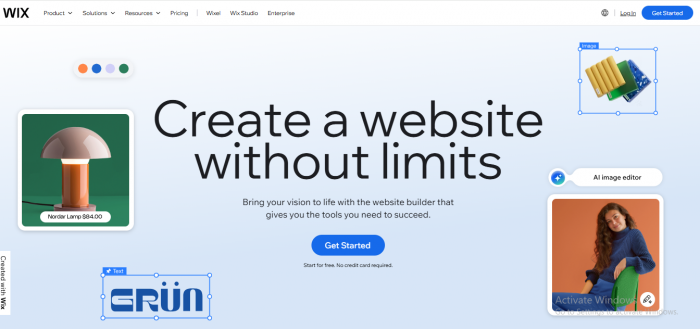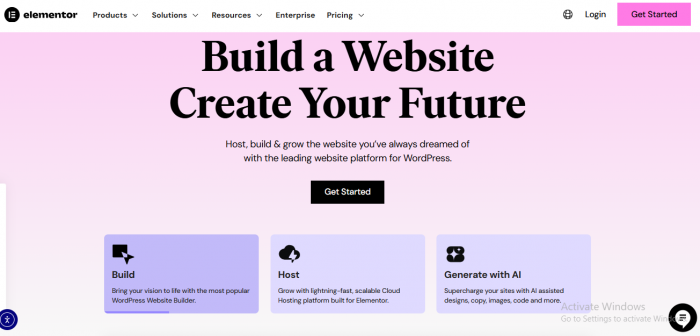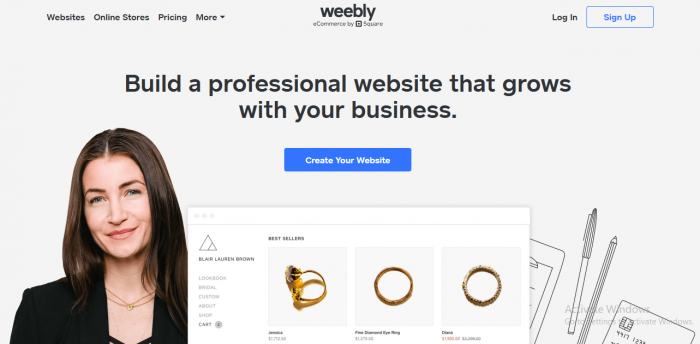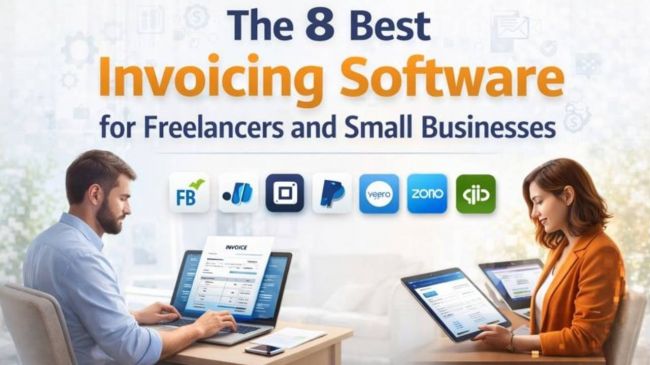On This Page
- Why Website Builders Are Essential for Small Businesses
- Top Website Builders for Small Businesses
- Wix: Easy, Versatile, and Affordable
- Squarespace: Beautiful Designs for Visually-Oriented Businesses
- Shopify: The Best for E-Commerce
- WordPress with Elementor: Total Control for Your Website
- Weebly: User-Friendly and Affordable
- Conclusion: Which Website Builder is Right for You?
- SEO Tips for Getting Your Website Ranked
- FAQs
When it comes to building a website for your small business, there are so many options out there that choosing the right platform can feel overwhelming. However, having the right website builder is crucial—it not only impacts your brand’s online presence but also affects how potential customers perceive your business. Today, we’re diving into the best website builders for small businesses. Whether you're a beginner or have some experience, this guide will help you choose the platform that best suits your needs.
Why Website Builders Are Essential for Small Businesses
Before we jump into the specifics, let’s quickly discuss why small businesses need a website builder in the first place.
- Cost-Effective: Hiring a web developer or design agency can be expensive. Website builders offer a more affordable option, especially for small businesses with tight budgets.
- Ease of Use: Most website builders provide intuitive drag-and-drop functionality, so you don’t need coding knowledge to create a professional-looking site.
- Customization & Scalability: You can often scale your website as your business grows, whether by adding an online store or more complex features.
Now that we’ve established the "why," let's get into the details of each website builder, with a focus on their strengths and unique offerings for small businesses.
Top Website Builders for Small Businesses
Wix: Easy, Versatile, and Affordable
Wix is one of the most popular website builders, especially for small businesses looking to get started quickly. Its drag-and-drop functionality makes it user-friendly, and its extensive template library gives you plenty of options to choose from.

Pros:
- A wide variety of templates tailored for different industries.
- Affordable pricing with a free version (though some limitations apply).
- Built-in SEO tools to help rank your website.
Cons:
- Limited flexibility if you want to switch templates after your site is live.
- pricey as you add advanced features.
Who’s it for?
If you want a simple, no-fuss way to get your site online and don't need heavy customization, Wix is a great starting point.
Wix for SEO:
Wix includes SEO tools like meta tags, alt text for images, and mobile optimization features. If you optimize your site correctly, Wix can help you rank well on Google SERPs.
Squarespace: Beautiful Designs for Visually-Oriented Businesses
Squarespace is known for its stunning, design-forward templates that make it a top choice for photographers, artists, and other creative professionals. It's also a great choice for small businesses that want a sleek, polished look.

Pros:
- Gorgeous, customizable templates with a strong visual appeal.
- Good for e-commerce businesses—integrated payment options.
- Mobile-responsive designs by default.
Cons:
- Slightly steeper learning curve compared to others.
- Pricing is higher compared to basic website builders.
Who’s it for?
If your business relies on visual appeal, like a photography studio, art gallery, or boutique, Squarespace could be your best bet.
Squarespace for SEO:
Squarespace also comes with SEO tools, including automatic sitemaps, customizable meta tags, and clean code, all of which help boost your chances of ranking higher in search engines.
Shopify: The Best for E-Commerce
When your primary goal is to sell products online, Shopify is the way to go. It’s specifically built to create and manage online stores, so you get a range of tools designed to help you grow your e-commerce business.

Pros:
- Robust e-commerce features, including secure payment processing, abandoned cart recovery, and inventory management.
- High scalability, which is great if your business grows.
- Built-in SEO tools specifically for e-commerce sites.
Cons:
- Monthly fees can get expensive, especially with premium apps.
- Customization is limited unless you're comfortable with coding.
Who’s it for?
If you're serious about running an online store, Shopify is the platform to consider. It's perfect for businesses focused on e-commerce.
Shopify for SEO:
Shopify automatically handles technical SEO, and it offers plugins for keyword optimization and content marketing. However, you’ll still need to focus on product descriptions, blog content, and building backlinks for a strong SEO presence.
WordPress with Elementor: Total Control for Your Website
WordPress is the gold standard when it comes to content management. While WordPress itself isn’t a drag-and-drop builder, using it with Elementor (a page builder plugin) gives you total control over your website’s design.

Pros:
- Unmatched flexibility with thousands of themes and plugins.
- SEO-friendly with powerful plugins like Yoast SEO.
- Complete customization options, even if you don’t know how to code.
Cons:
- Requires more technical knowledge to get the most out of it.
- Slower loading times if you have too many plugins installed.
Who’s it for?
If you’re a small business owner who wants complete control over your website’s functionality and design, WordPress with Elementor is perfect. It's especially beneficial for businesses that need a blog, e-commerce features, or advanced functionality.
WordPress for SEO:
WordPress is SEO-friendly right out of the box. Using tools like Yoast SEO and RankMath will further help you optimize your content. Moreover, WordPress allows you to manage all SEO aspects (from title tags to image alt text), making it a great platform for driving organic traffic.
Weebly: User-Friendly and Affordable
Weebly is another solid choice for small businesses due to its ease of use and low pricing structure. Its drag-and-drop functionality is incredibly intuitive, making it ideal for those who don't have any coding experience.

Pros:
- Affordable pricing, with options for small budgets.
- Easy-to-use drag-and-drop interface.
- Good for small e-commerce setups.
Cons:
- Limited customization for advanced users.
- The design options are not as sleek or modern as competitors.
Who’s it for?
If you have a small business that needs a website up and running quickly and doesn’t require a lot of customization, Weebly is a good option.
Weebly for SEO:
Weebly includes basic SEO features like page titles, descriptions, and alt text for images. However, it doesn't have the depth of options compared to other builders like WordPress.
Conclusion: Which Website Builder is Right for You?
So, which platform should you choose for your small business? It all depends on what you need. If you're looking for an easy-to-use solution with plenty of templates, Wix or Weebly is a great start. For those prioritizing design, Squarespace is the go-to. Shopify is perfect if e-commerce is your main focus, and WordPress is unbeatable if you need full control and customization.
SEO Tips for Getting Your Website Ranked
- While website builders offer SEO tools, it’s crucial to focus on content creation, user experience, and building backlinks. Here are a few quick tips:
- Keyword Optimization: Research and integrate keywords relevant to your business.
- Content Marketing: Publish high-quality, valuable content regularly.
- Mobile Optimization: Google prioritizes mobile-friendly websites in search rankings.
- Page Speed: Optimize your site’s loading time to improve both user experience and SEO rankings.
FAQs
- How do website builders help with SEO?
Most website builders come with built-in SEO tools that make it easier to optimize your site. They help with technical aspects like sitemaps, meta descriptions, and alt tags, but you’ll still need to focus on high-quality content and external factors like backlinks. - What’s the most affordable website builder for small businesses?
Weebly, Wix, and WordPress with Bluehost offer affordable pricing plans, especially for small businesses just getting started.
Post Comment
Be the first to post comment!





